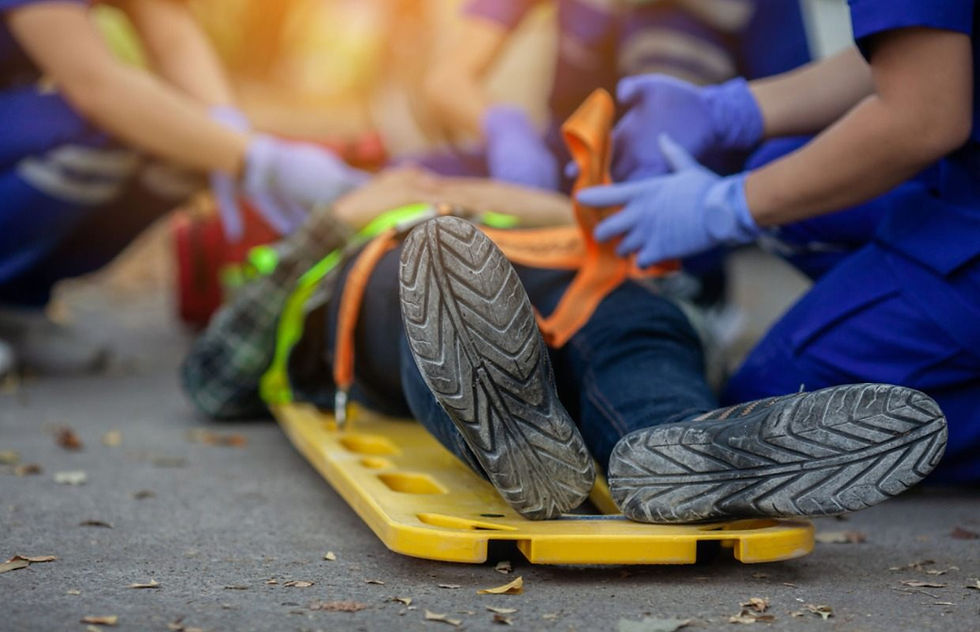Social Media Slip-Ups: How Your Posts Can Affect Your Personal Injury Case
- andrewlittlejohnjo
- Mar 5, 2024
- 4 min read
It has become second nature for many today to update friends and family about life events, even everyday interests, by posting on social media. As such, it is unsurprising that people would also post about more personal and devastating experiences, often to warn others about similar risks they might face and to express gratitude to those who helped them get past the worst of those incidents.
While there’s nothing wrong with posting on social media while actively pursuing a personal injury claim, it might affect your chances of receiving the maximum damages possible for your case. Read on to learn the common slip-ups in social media and personal injury claims, social media case law, and why excessive sharing on Facebook (Meta), Twitter (X), and other platforms can harm your personal injury case.
Common Mistakes in Social Media and Personal Injury Claims
Posting details that contradict your claims of injury and emotional distress.
Details in statements and proofs are crucial in a personal injury claims case. The defense will search and exploit any weakness in your testimony, and their methods may include combing through your social media accounts.
One common mistake is when people recount the lead-up to the incident and give details about the event. Memories can be flawed, and typos can be misconstrued. If you tell a different sequence of events on social media, the defense can use that inconsistency to weaken your initial statement. They can question the honesty and credibility of your version of events.
Another slip-up is revealing that you attended social events that would appear at odds with a person who’s supposedly suffering from immense emotional distress. Posting photos of yourself can appear incriminating. The opposing party can use it to paint an unfavorable picture of you before the judge and jury.
Defense teams can use your own words to disprove your claims of physical and emotional pain and suffering. Your insurance company can also seek any reason to offer a lowball against your claim. They can use your social media updates to refute your claims, especially if you seek compensation for a long-term disability or medical issue.
Revealing more than you should about your recovery.
Posting about your recovery is tricky because insurers and the defense can use it to downplay your injuries or refuse claims for emotional damages. If you can sit up, stand, and laugh like you’re not in pain, maybe you were never in pain to begin with. Maybe your spinal injury or knee fracture isn’t as bad as you claimed it to be. Having your social media posts to use as evidence that bolsters these arguments may cast a shadow on your case.
It’s frustrating not to be able to celebrate or express happiness that you’re recovering quickly for fear of harming your personal injury case. However, losing a claim or having damages reduced because of what defendants claim about social media posts from the plaintiff’s side is an even bigger problem.
People’s comments might jeopardize your claims.
People commenting about your situation can also harm your personal injury case. An offhand comment about your busy schedule despite your injuries, for example, or seeing you doing something that could be incriminating the day your injury happened, can be used against you. Jokes can also be taken out of context. In this case, requesting your nearest and dearest to avoid talking about your injuries or referencing the ongoing case on social media would be wise.
What Is Social Media Case Law?
Case law, also known as common law, is based on precedents or judicial decisions on earlier cases. These laws aren’t from the constitution, approved by regulation, or passed in a statute by the legislature. Therefore, a social media case law is an unwritten law created by following the judicial decisions in cases wherein social media posts are used as evidence.
An extensive library of case laws permitting the use of social media uploads as evidence in a personal injury case already exists. If the defense finds a social media case law similar to your situation, they can use that precedent to disprove your claim, build a counterclaim, and demand damages from you.
Consult with Attorney Andrew Littlejohn Johnson on Addressing Social Media Post Claims
Suppose the damage is already done, and you find out that the defense is making a damaging claim about social media posts regarding your injuries. You’ll need a proficient personal injury attorney to steer the narrative back in your favor. Showing the facts in court is just half the job; the other is presenting them skillfully so that the jury will accept your point of view.
If you have more questions about social media and personal injury claims, reach out to Littlejohn Law LLC. Littlejohn Law LLC handles a wide range of personal injury cases, including medical malpractice, DUI, automobile accidents, premises liability, and workers’ compensation claims.
Littlejohn Law LLC serves clients from anywhere in South Carolina. For further information or to discuss your situation, feel free to reach out to Littlejohn Law LLC.





Comments